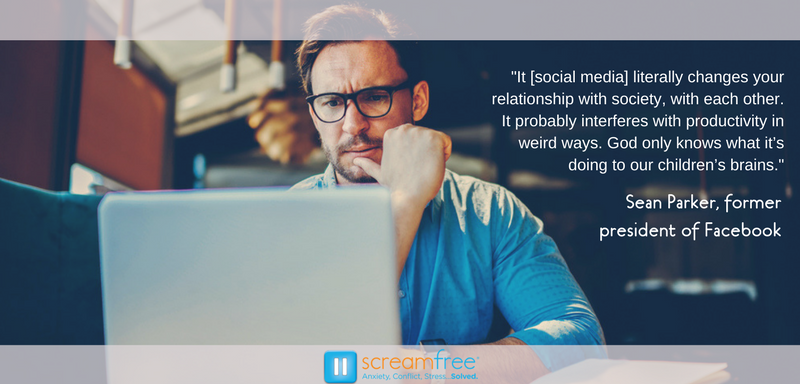Confirming Our Bias
“It [social media] literally changes your relationship with society, with each other. It probably interferes with productivity in weird ways. God only knows what it’s doing to our children’s brains.”
(Sean Parker, former president of Facebook)
Yesterday I ranted a bit about the Internet and its effects on us all. Turns out I’m not the only one. There are a number of Silicon Valley pioneers regretting their part in creating our current struggles.
Sean Parker is one of them. He is particularly concerned about what we mentioned yesterday, the Internet’s power to addict us to itself, and polarize us against each other with our own confirmation bias. In a nutshell, confirmation bias is a built-in brain function, leading us to scan any new information for confirmation of what we already believe. This helped our ancestors make sense of the world, but left unchecked can close us off to any positive changes in our mindsets, and thus our lives. Here are some examples:
—You believe you are always messing up, so even your successes are framed as exceptions that prove the norm.
—You believe your teenager is prone to lying, so you micro-inspect her words for any hint of deception (lest you feel like a fool for trusting her again).
—You believe a news source is biased, so anyone who reports for, or anyone who quotes from, that source is operating from that bias and trying to trick you into questioning what you know is truth.
These struggles have been present at any time in human history, but now this flaw in our brain’s functioning has more help than we ever could imagine. Here’s how it works:
—the Internet is promoted to us all as a free, unbiased, all-access pass to all the known information in the world
—Software engineers create programs and apps built with artificial intelligence to predict, based on our searches and clicks, what kinds of content we like, we agree with, and we share with others
—These programs perfect their ability to predict us, and therefore can identify us to advertisers, thus creating more targeted ad campaigns than ever before in history
—Since ads are these programs’ main ability to make money, the programs keep feeding us more of the same things we’ve already seen, liked, and shared
—Unbeknownst to the average user, seemingly random content, from the unbiased Internet, keeps showing up in their newsfeeds (which are called “newsfeeds” to perpetuate themselves as unbiased)
—We connect further with people who believe similar things, and we all constantly confirm our biases with each other, polarizing us against all who believe anything different
Here’s more from Sean Parker: “It’s a social-validation feedback loop … exactly the kind of thing that a hacker like myself would come up with, because you’re exploiting a vulnerability in human psychology.”
So where do we go from here?
(More tomorrow…)
Peace begins with pause,

